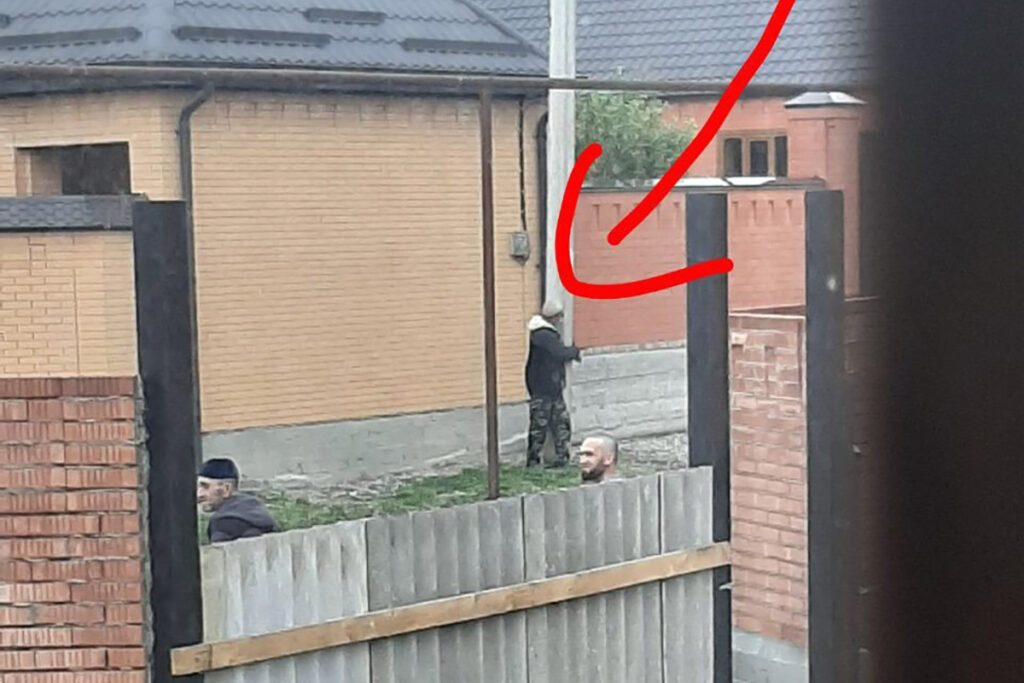Residents of Chechnya have reported a number of detentions and beatings by security forces of men and women who left their homes on the Muslim holiday of Eid al-Fitr.
Local residents received audio messages from the security forces via messaging application WhatsApp a day before the holiday, warning them not to leave their homes.
The message said that security forces would be patrolling the streets and detaining anyone found outside.
While stay-at-home orders are in place throughout Russia, the public are legally allowed to leave their homes for essential purposes.
Eid al-Fitr, the end of Ramadan, fell on the weekend of 23-26 May this year and is a public holiday in Chechnya.
On Sunday morning, WhatsApp messages began to circulate detailing beatings by the security forces of men who went out into the street in the village of Samashki, in western Chechnya, as well as women who tried to defend them.
In one audio message, a woman is heard describing several of the attacks.
‘Aset, who worked in the ambulance [of Achkhoy-Martan District], she was also beaten. Her son’s head was injured with a hit’, the woman says.
‘The gynaecologist Lipa’s husband was also beaten, and what was done to her brother is generally horrifying. They beat him until he said he was guilty because he went out into the street. Thank God, having connected all my friends, they were able to free them.’
An audio message from another woman describes more attacks.
‘In the morning we were fighting on our street, the authorities arrived and indiscriminately beat everyone — women, men, children, a woman with children. The security officials were drunk and did not understand what they were saying. Our men were taken away’, the woman is heard saying.
In an audio recording from another woman distributed with a photograph of a man tied to a pillar, the woman claims that the picture depicts her friend who the security forces tied to a pillar in Samashki because he went outside.
A resident of Achkhoy-Martan District who spoke on condition of anonymity confirmed the stories of beatings and detentions. The man told OC Media that while the beatings were ‘not widespread’ several people were seriously injured.
‘The mother of one of the violators of the regime who was insulted and beaten stood up for him. At that moment, someone either pushed her or hit her’, he said.
‘It’s my fault I said that’
In a video published online on Monday, three women identified as those responsible for recording and disseminating the WhatsApp messages are seen apologising for their actions.
The five-minute video was published on the pro-government Chechen Instagram account CHP Grozny.
In it, Abdul-Rashid Datsiyev, the qadi (a religious authority figure) of the Achkhoy-Martan District, accuses the women of being provocative and disseminating false information.
Referring to only one of the reported cases, Datsiyev says that the authorities had attempted to bring a man who violated self-isolation rules in Samashki to the local police station after which a group of women there ‘made a noise’.
He says that nothing the women described in the messages happened the way they described it. He also said that two of the women could not have known what happened as they lived in neighbouring villages.
In the same video, a man who introduces himself as the Imam of Samashki also accuses the women of spreading gossip, adding that the issue had already been resolved.
‘They asked for forgiveness for everything that happened and was said; everyone forgave each other’, the man says.
Further in the video, three middle-aged women appear separately, each accompanied by a ‘male relative’. In the video, the women are each accused of spreading lies after which each of them and their relatives apologises.
‘When I found out that people were beaten up in Samashki, I said in a rush that those who torment people should be shot like pigs. It’s my fault that I said that. I won’t say it anymore. Forgive me’, says one of the women, who introduced herself as a resident of the village of Kirov.
Public apologies in Chechnya
The practice of forcing members of the public to publicly apologise has been applied by the Chechen authorities for several years. Many such apologies are broadcast on state television channels or through official social media channels.
People frequently issue apologies for making public requests for help or publicly criticising the authorities. There have also been cases in which people have apologised for messages sent privately in messaging apps.
In one recent case on 5 April, a resident of the village of Khambi–Irzi, in the Urus-Martan District, apologised for publishing a video mocking the state aid his family received in the form of five tomatoes and two loaves of bread.
In the same month, a resident of the Urus-Martan District, Zara Tepsurkayeva, asked for forgiveness on state television for asking for help with food while being scolded by the district head.
[Read on OC Media: Public humiliation — the political trend sweeping through the North Caucasus]




 27 May 2020
27 May 2020



